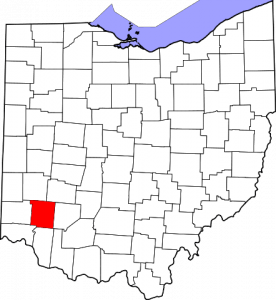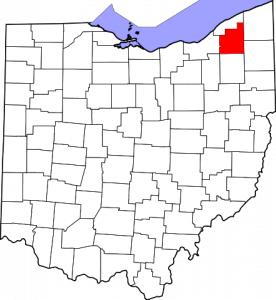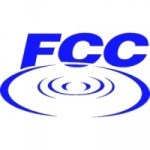
Phillip “At Least They Are Transparent About Robbing You” Dampier
The unassailable truth is that if there is a right way for a company to treat its customers and a wrong way, AT&T will always choose the wrong way. It’s the primary reason I refuse to do business with them.
The company’s recent decision to block Apple FaceTime for customers who refuse to be herded to one of AT&T’s new Mobile Share plans is another shot across the bow of Net Neutrality, which declares customers should be able to use the applications and services of their choosing — particularly on networks where they pay for those choices.
Principal #1 of Net Neutrality: Companies should not be playing favorites with applications or services by blocking or restricting those a provider does not favor.
AT&T’s response: ‘Whatever.’
The predictable outrage of customers should have come as no surprise to AT&T, but somehow it did.
The company picked testy senior vice president for regulatory affairs Bob Quinn to mount a rapid defense against the pitchfork-and-torch-yielding throngs on AT&T’s Public Policy Blog. That was their second mistake.
Quinn, who spent last December valiantly defending AT&T against its too-precious CupcakeGate mini-scandal, conjured up this pretzel-twisted logic tap dance to explain away its latest boorish behavior:
Providers of mobile broadband Internet access service are subject to two net neutrality requirements: (1) a transparency requirement pursuant to which they must disclose accurate information regarding the network management practices, performance, and commercial terms of their broadband Internet access services; and (2) a no-blocking requirement under which they are prohibited, subject to reasonable network management, from blocking applications that compete with the provider’s voice or video telephony services.
AT&T’s plans for FaceTime will not violate either requirement. Our policies regarding FaceTime will be fully transparent to all consumers, and no one has argued to the contrary. There is no transparency issue here.
Nor is there a blocking issue. The FCC’s net neutrality rules do not regulate the availability to customers of applications that are preloaded on phones. Indeed, the rules do not require that providers make available any preloaded apps. Rather, they address whether customers are able to download apps that compete with our voice or video telephony services. AT&T does not restrict customers from downloading any such lawful applications, and there are several video chat apps available in the various app stores serving particular operating systems. (I won’t name any of them for fear that I will be accused by these same groups of discriminating in favor of those apps. But just go to your app store on your device and type “video chat.”) Therefore, there is no net neutrality violation.
 A company lecturing its customers for daring to question its decisions is always a good way to enhance those warm and fuzzy feelings people have about America’s least-liked wireless phone company. Quinn first scolds customers and consumer groups about their “knee jerk reaction,” for being upset about the issue. Then he declares they have “rushed to judgment,” using a turn of phrase not heard since O.J. Simpson’s defense team pounded it to death, and look where that ultimately got us.
A company lecturing its customers for daring to question its decisions is always a good way to enhance those warm and fuzzy feelings people have about America’s least-liked wireless phone company. Quinn first scolds customers and consumer groups about their “knee jerk reaction,” for being upset about the issue. Then he declares they have “rushed to judgment,” using a turn of phrase not heard since O.J. Simpson’s defense team pounded it to death, and look where that ultimately got us.
The crux of AT&T’s argument is they get a free pass to “block and herd” because Apple FaceTime was pre-installed on customer phones. Therefore, since AT&T didn’t block you from downloading an app you already had, it cannot possibly be a Net Neutrality violation. Because as we all know, Net Neutrality is only about download blocking.
At least AT&T is keeping their promise to be transparent. They have, indeed, fully informed you they are mugging you while in the process of mugging you. Full disclosure… matters.
Somehow, I missed the “preinstalled does not count” section in the Federal Communications Commission’s December 2010 order to providers telling them to preserve the free and open Internet. So I spent last night with this legalese page-turner (194 pages to be exact) to refresh my memory.

Nope, it isn’t in there. You can read it for yourself from the link above.
So it isn’t me. It is them, making up the rules as they go, again.
Quinn graciously offers customers one concession: AT&T will allow you to use Apple FaceTime over your own home Wi-Fi network. Gosh thanks!
For customers addicted to FaceTime, AT&T’s solution is an expensive plan change. An average customer currently paying $70 for 450-barely used voice minutes and 3GB of data will find FaceTime off-limits on AT&T’s network unless they “upgrade” to AT&T’s $95 Mobile Share plan, which gets you only 1GB of data, but endless voice minutes you don’t want and unlimited texting you don’t need.
Result: Pay $25 more a month and get your data allowance slashed by 2/3rds. That’s a deal — AT&T-style.
But it is one some customers are through taking. Nalin Kuachusri:
The new FaceTime restrictions will usher in the end of my 12+ year relationship with AT&T. I’m tired of the consistent manipulation of plans and features to extract more and more money for services I don’t need. For example: there used to be several text-message options (200, 1000, 1500, unlimited) so I could choose and pay for the one that fit my usage best. Then there was the option to move from unlimited data to 2GB/month to save $5. That was great for me and fit my usage. Then I was forced to move back to $30/month if I wanted to add tethering where I’ll get an extra GB that I’ll never use. Finally, after 12 years as a customer with an account in good standing, I was not allowed to unlock my phone for my 10-day trip to Europe so I could get a local SIM. I couldn’t be happier to give you one final $200 payment as an early-termination fee so I can move to Verizon.
Unfortunately for Kuachusri, the bosses at Verizon Wireless are likely slapping themselves silly because they did not come up with the idea first.


 Subscribe
Subscribe






